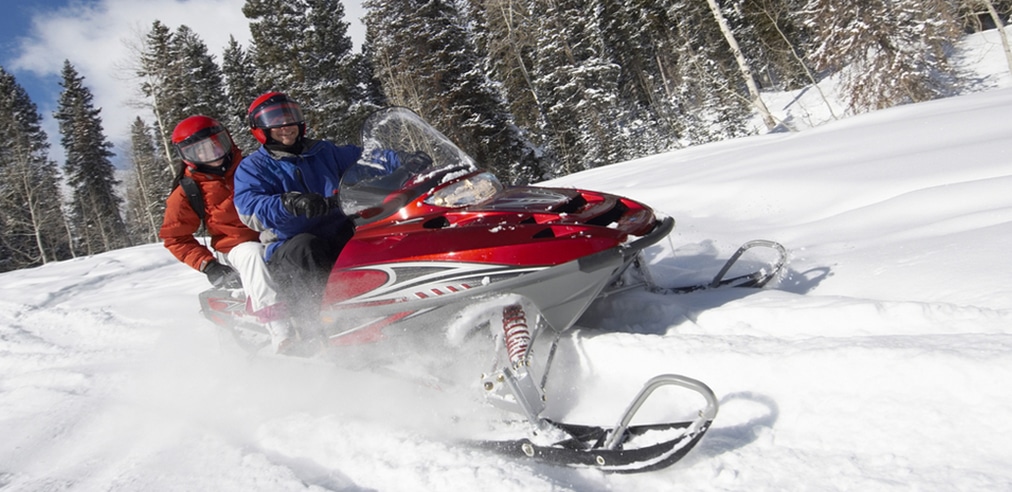The laws dictating who can and can’t drive snowmobiles are significantly different from those governing cars. Generally, riding your snowmobile has fewer rules than driving your car: There are no set speed limits, you don’t need a license to drive one, and you can go off-road. Importantly, because you don’t need a specific license to drive your snowmobile, like you need a driver’s license to drive a car, children and minors under the age of 16 can drive a snowmobile.
Generally, children under the age of 10 still can’t drive a snowmobile without being accompanied by an adult. However, this only applies to public roads or lands – nothing says that children under 10 years old can’t drive a snowmobile on their own while on private land owned by their parents, or on land owned by someone who’s given them (or, more likely, their parents) permission to drive on. This gives young kids an excellent opportunity to hone their driving skills, without damaging someone else’s property, or putting the public at risk.
Children between the ages of 10 and 14 can operate a snowmobile on their own, but not on any “public way.” These “public ways” are “any road capable of carrying motor vehicles, including, but not limited to, any state highway, municipal road, county road, unincorporated territory road, or other road dedicated to the public.” Kids between 10 and 14 can still drive a snowmobile on public trails, or on private land that they have permission to drive on. They just need to avoid riding on or across any of these “public ways.”
Additionally, under Maine law, all children below the age of 18 have to wear proper headgear, regardless of whether they’re driving the snowmobile, or just riding it as a passenger.
Regardless of age, snowmobile drivers are expected to abide by Maine’s snowmobiling regulations, including the proper use of headgear and lighting, maintaining respectable noise levels, and safe driving, both on roadways and trails.
An important final note about minors driving snowmobiles: If a minor is driving and there is an accident, who is liable to pay for the damages that result from the accident is complex. Because the minor can’t (and probably shouldn’t) be held responsible to pay to make things right, it falls on three people to compensate the victim: (1) The owner of the snowmobile, (2) the minor’s parent or guardian, and (3) the person who let the minor drive the snowmobile. Often, this will be the same person, but if they’re different people, they will be held jointly and severally liable to pay for the damages that the under aged driver caused. This means that the victim of the minor’s driving can seek compensation from any one of these three people and, once the victim has been compensated, it’s up to these three to figure out who will pay.
As always, these laws can make for complex situations, making it important to have an attorney with experience dealing with Maine’s conservation laws. William T. Bly has that experience. Call his law office at <(207) 571-8146.
